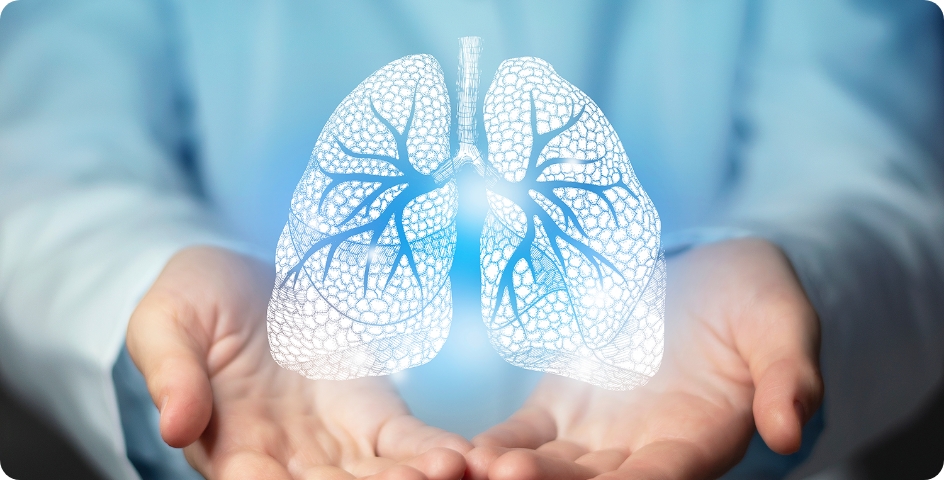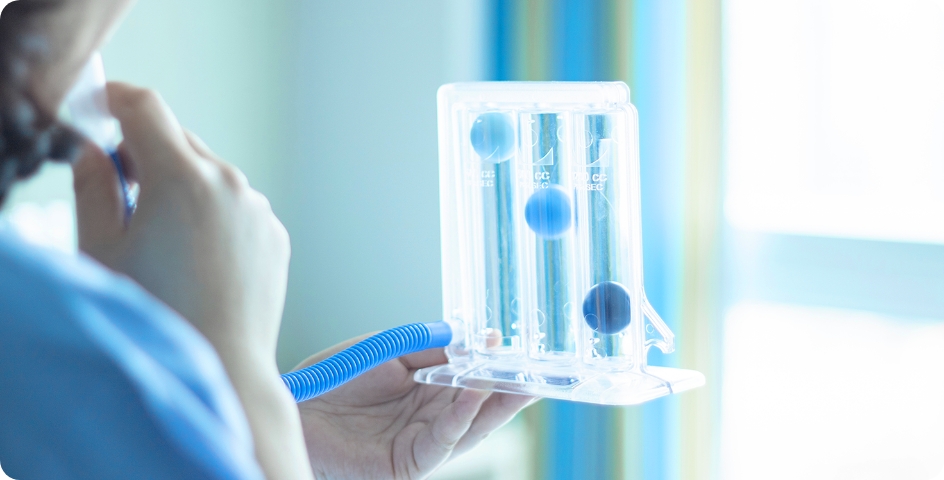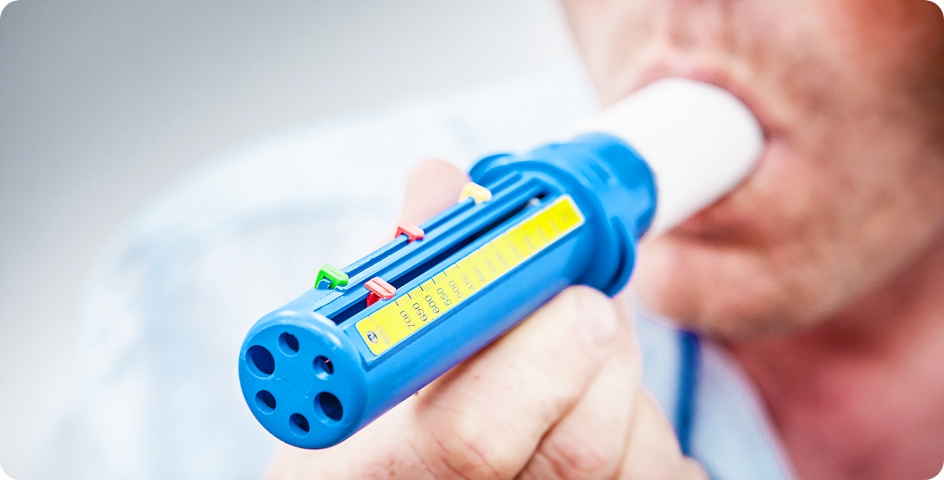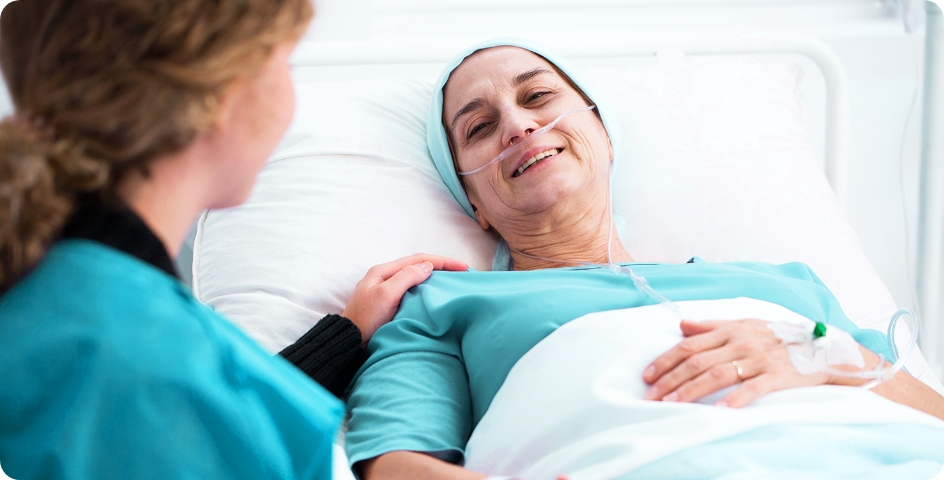Lung Cancer Treatment in Turkey
Healthy Türkiye helps you find the best lung cancer treatment in Turkey at affordable prices and adopts a 360-degree service approach in all areas of health through affiliated hospitals.
- Medical Treatment
- Cancer Treatment in Turkey
- Image Guided Radiotherapy in Turkey
- Image-Guided Radiosurgery in Turkey
- Intensity-Modulated Radiation Therapy in Turkey
- Kidney Cancer Treatment in Turkey
- Leukemia Treatment in Turkey
- Liver Cancer Treatment in Turkey
- Lung Cancer Treatment in Turkey
- Lymphoma Treatment in Turkey
- Bladder Cancer Treatment in Turkey
- Bone Marrow Transplant in Turkey
- Brachytherapy in Turkey
- Brain Cancer Treatment in Turkey
- Breast Cancer Treatment in Turkey
- Cervical Cancer Treatment in Turkey
- Chemotherapy in Turkey
- Colon Cancer Treatment in Turkey
- Hormonal Therapy in Turkey
- Bone Cancer Treatment in Turkey
- Endometrial Cancer Treatment in Turkey
- Gastric Cancer Treatment in Turkey
- Gene Therapy in Turkey
- Melanoma Treatment in Turkey
- Mesothelioma Treatment in Turkey
- Metastatic Cancer Treatment in Turkey
- Mouth Cancer Treatment in Turkey
- Neuroblastoma Treatment in Turkey
- Oral Cancer Treatment in Turkey
- Ovarian Cancer Treatment in Turkey
- Pancreatic Cancer Treatment in Turkey
- Photodynamic Therapy in Turkey
- Proton Therapy in Turkey
- Sarcoma Treatment in Turkey
- Skin Cancer Treatment in Turkey
- Stereotactic Body Radiation Therapy in Turkey
- Targeted Therapy in Turkey
- Testicular Cancer Treatment in Turkey
- Throat Cancer Treatment in Turkey
- Thyroid Cancer Treatment in Turkey
- Uterine Cancer Treatment in Turkey
- Volumetric-Modulated Arc Therapy in Turkey
- Prostate Cancer Treatment in Turkey
- Robotic Radical Prostatectomy Surgery in Turkey
- Hemato-Oncology Treatment in Turkey
- Skin Cancer Malignant Melanoma Treatment in Turkey
- Colorectal Cancer Treatment in Turkey
- Radiotherapy in Turkey
- Immunotherapy in Turkey
- TIL Therapy in Turkey
- TCR-T Therapy in Turkey
- CAR NK Cell Therapy in Turkey
- Gene Editing Therapy in Turkey
- Dendritic Cell Vaccines in Turkey
- Oncolytic Virus Therapy in Turkey
- NK-92 Cell Therapy in Turkey
- Cytokine Therapy in Turkey
- Bispecific T-cell Engager in Turkey
- Macrophage-Based Therapy in Turkey
- IPSC-Derived Immunotherapies in Turkey
- Glossectomy in Turkey
- Regulatory T Cell Therapy in Turkey
- Gamma Delta T Cells Therapy in Turkey
- Homepage
- Medical Treatment
- Lung Cancer Treatment in Turkey

About Lung Cancer Treatment in Turkey
Lung cancer treatment in Turkey is a cure for patients from all over the world with surgical, radiological, chemical, or innovative targeted therapies and the latest technologies available. Lung cancer is the most common type of cancer in Turkey as in other countries. Lung cancer is the cancer type with the highest risk of death and the fastest spreading. The uncontrolled spread of the tumor begins in the lung, and if not detected early, it spreads to all organs of the body, especially the lymph.
Lung cancer develops when the normal development of growth and cell division is disrupted, resulting in uncontrollable, aberrant growth. The cells further grow into a tumor. The confusion in detecting lung cancer arises due to the most common symptom, persistent cough which is often mistaken for bronchitis or a cold. When the uncontrolled growth of cells in the lung spreads to other areas of the body or returns after removal, the cells become cancerous or malignant. The most prevalent lung cancer diagnosis is between the ages of 65 and 70. Also, 25% of cases of lung cancer are diagnosed in non-smokers.
The diagnosis of lung cancer in its early stages is difficult, and usually, by the time the doctors diagnose it, it has become critical. Generally, lung cancer occurs in patients above 65 years of age. One of the major causes of lung cancer is smoking, followed by air pollution, prolonged exposure to radon gas, and asbestos fibers.
Many hospitals in Turkey, have international accreditations like JCI. They are all well-equipped with the state-of-the-art technology necessary to treat lung cancer. The majority of lung cancer treatment hospitals in Turkey also have cancer research centers. Turkish cancer surgeons not only assist patients by providing cutting-edge treatment facilities, but they also assist patients in dealing with the challenges of living with cancer. This process is carried out by sharing information and supporting patients emotionally, physically, and mentally.
Pain is the most important thing for patients in the treatment of lung cancer, and Turkey’s oncology surgeons apply methods of treating tumors of different sizes with minimal pain, with procedures such as surgery, radiotherapy, and chemotherapy, depending on the condition of the patients. At Healthy Türkiye, we are with you for early diagnosis and the fastest treatment with our surgeons who are experts in their fields in lung cancer and all other diseases. Contact Healthy Türkiye now to plan your lung cancer treatment in Turkey and relieve your worries.

Lung Cancer Treatment Process in Turkey
In Turkey, treatment for lung cancer depends on the type of cancer you have and the stage you’re diagnosed with. Lung cancer treatment often includes surgery, chemotherapy, and radiation. Newer treatments are helping improve survival odds for lung cancer patients, and participating in a clinical trial could offer promise when other treatments stall. There is no guaranteed way to prevent lung cancer, but by quitting smoking and avoiding hazardous exposures, you might dramatically reduce your risk of developing lung cancer.
Lung cancer is an uncontrolled improvement of cells that begins in the lungs. Ordinarily, cellular breakdown in the lungs starts in the cells that line the air entries. Rather than forming into sound lung tissue, the cells partition quickly and form tumors. Lung cancer might develop and spread beyond the lung to reach other parts of the body through metastasis. Lung cancers can starts in any piece of the lung, but 90 percent of lung cancers begin in the epithelial cells, which are the cells lining the larger and smaller airways also known as bronchi and bronchioles.
This is the reason why lung cancer is sometimes called bronchogenic cancer or bronchogenic carcinomas. Lung cancer is the most common cancer in the world, among people. It is the major source of malignancy passings around the world. Lung cancer is most curable when it’s caught early. Unluckily, the early stages of lung cancer don’t always cause symptoms.
Lung cancer treatment is an option for some patients depending on the type, location, and stage of their lung cancer and other medical cases. Attempts to cure lung cancer with surgery include removing the tumor along with some surrounding lung tissue and often lymph nodes in the region of the tumor. Removing the tumor with a lung cancer operation is considered the best option when the cancer is localized and unlikely to have spread. This involves early-stage non-small cell lung cancers and carcinoid tumors.
Healthy Türkiye is one of the pioneers and most reputable companies in the field of medical tourism in Turkey. Lung cancer treatment in Turkeyoffers world-class medical facilities, comparable with any of the Western or European countries. Turkey has state-of-the-art hospitals and the finest medical experts. With the most excellent infrastructure, and the best possible medical facilities, accompanied by the most competitive costs, you can get the treatment done in Turkey at the lowest rates.

We Care About Your Health
Healthy Türkiye provides the best for your health and comfort. You will feel privileged with us.
7/24 Quality Personal Assistance Throughout Your Journey
Customizable for You All-Inclusive Packages
Get the Right Advice for your Health
Lung Cancer Treatment Procedure in Turkey
Lung cancer treatment in Turkey is one of the most comprehensive methods performed overall in Turkey. It is a system that functions through a community formed by many oncologists and specialist doctors from different departments. Turkey’s healthcare team, determines in a professional way the diagnosis, the stage at which your cancer is, and the treatment and recovery process.
Lung cancer treatment decisions in Turkey’s high-volume centers are taken in a multidisciplinary way, including radiologists, pathologists, nuclear medicine specialists, surgeons, and medical and radiation oncologists. Surgery is the primary treatment modality in the early stages of cancer. And lung cancer surgeons who are well-experienced throughout Turkey can perform all sorts of surgical techniques, including robotic ones, with high success. Besides, lung cancer chemotherapy and radiotherapy are well-developed in Turkey with the availability of recent FDA-approved targeted drugs and immunotherapeutic centers as well. Certain centers in Turkey are also included in multinational studies on the treatment of this disease.
When a tumor starts in your lung, this is called primary lung cancer. Sometimes cancer spreads to your lungs through your bloodstream or immune system from another area of your body, such as your kidney, breast, or prostate. This is called secondary lung cancer. Generally, lung cancer starts in the cells that line the air passages that is instead of developing into healthy lung tissue, the cells divide rapidly and form tumors. Lung cancers may begin in any area of the lung, but 90 percent of cancers begin in the epithelial cells, which are the cells lining the larger and smaller airways also known as bronchi and bronchioles. This is the reason why lung cancer is called bronchogenic cancer or bronchogenic carcinoma.
Healthy Türkiye has hospitals and specialists that are specialized in the latest techniques for diagnosing and treating all types of cancer, including lung cancer. They work together to evaluate the newest, evidence-based approaches so we can offer them to every patient without delay.

How Is Lung Cancer Treatment Performed in Turkey?
The primary treatments for lung cancer include surgery to remove cancer and chemotherapy and radiation treatments to kill cancer cells. Sometimes, newer cancer treatments such as targeted therapy and immunotherapy can also be used, but usually not until later stages. There are two commonly applied approaches to removing portions of the lung. The choice depends on the location, size, and stage of the lung cancer and the expertise of the surgeon.
A thoracotomy is an incision on the side of the chest that follows the curve of your ribs. It typically involves dividing some of the muscles of the chest wall and using an instrument to gently spread between two ribs to provide the doctor access to the lung. The muscles are repaired when the incisions are closed.
The minimally invasive surgery approach typically involves 1 to 4 small incisions to access the inside of the chest. The doctor uses a camera to visualize the lung and special instruments to perform the surgery. This is also known as thoracoscopy or video-assisted thoracoscopic surgery (VATS) and might also be done with the assistance of a surgical robot.
It is best to discuss all your treatment options before making a decision. Your surgeons and specialists will coordinate care and keep each other informed. You might also want to discuss clinical trials with your doctor. Clinical trials might provide access to promising new treatments and can be an option if your treatment plan has stalled. Some patients with advanced lung cancer choose not to continue treatment. You might still choose palliative care treatments, which are focused on treating the symptoms of cancer rather than cancer itself. Healthy Türkiye ensures you have the best lung cancer treatment in Turkey.

Lung Cancer Treatment Types in Turkey
Lung cancer is treated in many ways, depending on the type of lung cancer and how far it has spread. People with non-small cell lung cancer might be treated with surgery, chemotherapy, radiation therapy, targeted therapy, or a combination of these treatments. Patients with small cell lung cancer are usually treated with radiation therapy and chemotherapy.
Surgery: An operation where surgeons cut out cancer tissue.
Chemotherapy: Using special medicines to minimize or kill the cancer. The drugs might be pills you take or medicines given in your veins, or sometimes both.
Radiation therapy: Using high-energy rays (similar to X-rays) to destroy cancer cells.
Targeted therapy: Using drugs to stop the growth and spread of cancer cells. The drugs may be pills you take or medicines given in your veins. You will get tests to see if targeted therapy is right for your cancer type before this treatment is applied.
Doctors from different specialties generally work together to treat lung cancer in Turkey. Pulmonologists are doctors who are experts in diseases of the lung. Surgeons are doctors who are performing operations. Thoracic surgeons are specialized in chest, heart, and lung surgery. Medical oncologists are the doctors who treat cancer with medicines. Radiation oncologists are doctors who treat cancers by using radiation.
Choosing the treatment that is right for you might be hard. Your cancer doctor will talk to you about the treatment options available for your type and stage of cancer. Your doctor in Turkey can explain the risks and benefits of each treatment and its side effects. Side effects are how your body reacts to drugs during your lung cancer treatment. Healthy Türkiye ensures you find the best oncologist in Turkey.
Lung Cancer Types
The lungs are part of a group of organs and tissues, known as the respiratory system that help people breathe. When you inhale, the lungs absorb oxygen from the air. Then, the lungs bring oxygen into the bloodstream for delivery to the rest of the body. The lungs have many different types of cells. Most lung cells are epithelial cells. These lung cells line the airways and make mucus, which lubricates and protects the lungs. The lungs also have nerve cells, hormone-producing cells, blood cells, and structural or supporting cells. In light of the appearance of lung cancer cells under the microscope, there are two important kinds of lung cancer:
Non-small Cell Lung Cancer (NSCLC)
NSCLC is a term for a few sorts of lung cancer that behave similarly, such as squamous cell carcinoma, adenocarcinoma, and large cell carcinoma. If you have non-small-cell lung cancer in the lungs, you’re in acceptable general well-being. You’ll have a medical procedure to eliminate the carcinogenic cells. This may be followed by a course of chemotherapy to obliterate any malignant growth cells that might have stayed in your body. There are three kinds of non-small cell lung cancer, which are:
Squamous Cell Carcinoma: Also known as epidermoid carcinoma. The cancer shape is thin, inlining the lungs.
Large Cell Carcinoma: Cancer that may begin in many types of huge cells.
Adenocarcinoma: Cancer that begins in the cells that line the alveoli and make substances like mucus.
In cases of cancer where the malignant growth has not spread far and the medical procedure isn’t possible, you might be offered radiotherapy to obliterate the cancerous cells. This may be combined with chemotherapy. Another course of treatment can be suggested for lung cancer when the malignant growth begins to develop again after you have had chemotherapy treatment. Sometimes, if the disease has a particular change, biological or targeted therapy may be suggested rather than chemotherapy, or after chemotherapy. Physical therapies are medications that control or stop the development of cancer cells.
Small Cell Lung Cancer (SCLC)
This type of lung cancer in the lungs happens generally in heavy smokers, and it is less common than non-small cell lung cancer. Small-cell lung cancer is typically treated with chemotherapy, either all alone or in the mix with radiotherapy. This procedure might assist with dragging out life and relieving symptoms. Surgery is not usually used to treat the SCLC type of lung cancer. This is on the grounds that the disease has often effectively spread to other areas of the body by the time it’s diagnosed. But, if the cancer is found early enough, surgery can be used. In these situations, chemotherapy or radiotherapy may be given after surgery to help decrease the risk of cancer returning
Lung carcinoid tumor: It is a type of tumor with cancer made up of neuroendocrine cells. These cells are found throughout the body, including the lungs. They are similar to endocrine cells because they both produce hormones. On the other hand, they resemble nerve cells because both may secrete neurotransmitters. There are two types of lung carcinoid tumors that are typical and atypical. Lung carcinoid tumors are rare and tend to grow slowly. They are also made up of special kinds of cells called neuroendocrine cells. A carcinoid tumor starts from cells of the diffuse neuroendocrine system.
Symptoms Lung Cancer
Some of the signs and symptoms of lung cancer have not yet spread beyond the chest. However, these signs and symptoms are often mistaken as related to other health problems rather than lung cancer. The delay in diagnosis and treatment makes lung cancer high-mortality cancer for people. At its advanced stage, the probability of a successful lung cancer treatment is low. Around 80% of lung cancer patients have stage III or IV diseases at presentation, therefore excluding them from potentially curative surgical resection. Detection of the tumor at an earlier stage leads to an improved prognosis. Patients presenting with stage IA non-small cell lung cancer and undergoing surgical resection have a 5-year survival of around 60%. Some of the major symptoms in diagnosing and treating lung cancer are
Persistent, intense coughing.
Change in color or volume of sputum.
Hoarse voice
Coughing up blood or blood-tinged mucus or phlegm
Recurring bronchitis and other lung problems.
Chest, shoulder, or back pain that is not due to coughing.
Shortness of breath and respiratory symptoms
The following symptoms can be experienced if lung cancer has spread from the chest to the other areas of the body. The symptoms may or may not depend on the body area where the lung cancer has spread.
Fatigue and weakness.
Headache, memory loss, mental changes, or blurred vision if cancer has spread to the brain.
Unexplained weight loss.
Bone pain if cancer has spread to the bones.
Back pain, loss of bladder or bowel function, or paralysis if cancer is already in the spinal cord.
Patients can live with lung cancer for many years before it becomes apparent. Early lung cancer is largely asymptomatic and internalization of tumors means patients are not alerted by obvious physical changes. For example, it takes around 8 years for a squamous cell carcinoma to reach a size of 30 mm when it is most commonly diagnosed stage, by the time symptoms arise, the risk of metastasis is considerable. Once symptoms appear they are generally ignored by patients, delaying the diagnosis and treatment even further. The reasons for the patient’s delay in diagnosis are poorly understood
If you are concerned about any changes you experience, please contact Healthy Türkiye and use free consultation with our doctor. Our doctor will ask how long and how often you’ve been experiencing the symptoms, in addition to other questions that is to help figure out the cause of the problem.
Diagnosis for Lung Cancer Treatment in Turkey
A lung cancer diagnosis is actually the first step of treatment in Turkey. Some lung cancers make abnormally high blood levels of certain hormones or substances like calcium. If your calcium is higher than normal and no other cause is apparent, your doctor can suspect lung cancer. Lung cancer, which originates in the lungs, might also spread to other parts of the body, such as distant bones, the liver, adrenal glands, or the brain. It can be first discovered in a distant location, but it’s still called lung cancer if there is evidence it started there.
Once lung cancer starts to cause symptoms, it is usually visible on an X-ray. Sometimes, lung cancer that has not yet begun to cause symptoms is spotted on a chest X-ray taken for another purpose. Your oncologist might order a CT scan of your chest for a more detailed exam. Diagnosis of lung cancer is generally confirmed with a lung biopsy. The doctor guides a thin, lighted tube through your nose or mouth and down the air passages to the tumor and removes a tissue sample. This is known as bronchoscopy, often with endobronchial ultrasound (EBUS)-guided biopsy. This is useful for finding tumors near the center of the lung.
People with an increased risk of lung cancer might consider annual lung cancer screening using low-dose CT scans. Lung cancer screening is usually offered to older adults who have smoked heavily for many years or who have quit in the past 10 years. Please discuss your lung cancer risk with your doctor. Together you might decide whether lung cancer screening is right for you.
Tests to Diagnose Lung Cancer
Some lung cancers can be found by screening, but most lung cancers are found because they are causing issues. The actual diagnosis of lung cancer is made by looking at a sample of lung cells. If you have possible signs or symptoms of lung cancer, please see your doctor. If there’s reason to think that you might have lung cancer, your doctor can order a number of tests to look for cancerous cells and to rule out other cases. Tests may include
Imaging tests: An X-ray image of your lungs might reveal an abnormal mass or nodule. A CT scan might reveal small lesions in your lungs that might not be detected on an X-ray.
Sputum cytology: If you have a cough and are producing sputum, looking at the sputum under the microscope might sometimes reveal the presence of lung cancer cells.
A tissue sample (biopsy): A sample of abnormal cells can be removed in a procedure called a lung biopsy.
Your doctor can perform a biopsy in a number of ways, including bronchoscopy, in which your doctor examines abnormal areas of your lungs using a lighted tube that’s passed down your throat and into your lungs. Mediastinoscopy, in which an incision is made at the base of your neck and surgical devices are inserted behind your breastbone to take tissue samples from lymph nodes, is also an option.
Another option is needle biopsy, in which your specialist uses X-ray or CT images to guide a needle through your chest wall and into the lung tissue to collect suspicious cells. A biopsy sample might also be taken from lymph nodes or other areas where cancer has spread, such as your liver.
Careful analysis of your cancer cells in a lab can reveal what type of lung cancer you have. Results of sophisticated testing can show your doctor the specific characteristics of your cells that might help determine your prognosis and guide your treatment.
Tests to Determine The Extent of Lung Cancer
Once your lung cancer has been diagnosed, your surgeon will work to determine the extent (stage) of your cancer. Your cancer’s stage helps you and your doctor decide which treatment is most appropriate. If the biopsy and other tests show that you have cancer, you can have more tests to help your doctor plan treatment. For instance, your doctor might need to figure out the stage of your cancer. For some cancers, knowing the grade of the tumor or risk group that you fall into are crucial for deciding on the best treatment. Your tumor might also be tested further for other tumor or genetic markers.
Staging tests may include imaging procedures that ensure your doctor is looking for evidence that cancer has spread beyond your lungs. These tests are including CT, MRI, positron emission tomography (PET), and bone scans. Not every test is appropriate for every patient, so it is fine to talk with your doctor about which procedures are right for you. The stages of lung cancer are shown by Roman numerals that range from 0 to IV, with the lowest stages indicating cancer that is limited to the lung. Stage IV means the cancer is considered advanced and has spread to other areas of the body.
After determining your type of lung cancer, staging is the next step in the lung cancer diagnosis procedure. Your team will use results from tests and tissue samples to decide your lung cancer stage. Staging purposes determine your recommended treatment plan.
Lung cancer staging is also used to discuss the general outlook for your recovery process. This is sometimes called a lung cancer prognosis. Doctors might estimate prognosis based on the experiences of other people with the same type and stage of cancer. Because every patient is different, no doctor can accurately predict the life expectancy of an individual with lung cancer.
Recovery from Lung Cancer Treatment in Turkey
After lung cancer treatment, you’re taken to a recovery room to wake up from the procedure. Nurses will monitor your heart rate, blood pressure, breathing, and oxygen levels. You might need to spend the first day after surgery in an intensive care unit (ICU). When you’re stable, you’ll go to a regular hospital room to recover. You’ll need to stay in the hospital for five to seven days. During that time, the medical staff will check you for possible complications from your operation.
It might be hard for you to breathe at first. Ease back into your daily activities only when you feel ready. You’ll need to abstain from intense activities like heavy lifting for six to eight weeks after your surgery.
Whether your treatment ends or is ongoing, you will have regular appointments to deal with any long-term side effects and check that cancer hasn’t come back or spread. During these check-ups, you can usually have a physical examination and you might have X-rays, CT scans and blood tests. You will also be able to discuss how you’re feeling and mention any concerns you can have. Check-ups after the operation are likely to happen every 3–6 months for the first couple of years and 6–12 months for the following three years. When a follow-up appointment or test is approaching, many people might feel anxious. It is better to talk to your treatment team or call Healthy Türkiye if you are finding it hard to manage this anxiety. Between appointments, let your doctor know immediately of new health issues or changes in symptoms.

2026 Cost of Lung Cancer Treatment in Turkey
All types of medical attentions like lung cancer are very affordable in Turkey. Many factors are also included in determining the cost of lung cancer in Turkey. Your process with Healthy Türkiye will last from the time you decide to have a lung cancer in Turkey until the time you are fully recovered even if you are back home. The exact lung cancer procedure cost in Turkey depends on the type of operation involved.
The cost of lung cancer in Turkey does not demonstrate many variations in 2022. Compared to costs in developed countries like the United States or the UK, lung cancer costs in Turkey are relatively low. So, it’s no wonder patients from across the world visit Turkey for lung cancer procedures. However, the price is not the only factor affecting choices. We suggest looking for hospitals that are safe and have lung cancer reviews on Google. When people decide to seek medical help for lung cancer, they will not only have had low-cost procedures in Turkey, but also the safest and best treatment.
At clinics or hospitals contracted with Healthy Türkiye, patients will receive the best lung cancer from specialist doctors in Turkey at affordable rates. Healthy Türkiye teams provide medical attention lung cancer procedures and high-quality treatment to patients at a minimum cost. When you contact Healthy Türkiye assistants, you can get free information about the cost of cancer treatment in Turkey and what this cost covers.
Why Is Lung Cancer Treatment Cheaper in Turkey?
One of the main considerations before traveling abroad for lung cancer is the cost-effectiveness of the whole process. Many patients think that when they add flight tickets and hotel expenses to their lung cancer costs, it will become very expensive to travel, which is not true. Contrary to popular belief, round-trip flight tickets to Turkey for lung cancer can be booked very affordably. In this case, assuming you are staying in Turkey for your lung cancer, your total travel expense of flight tickets and accommodation will only cost less than any other developed country, which is nothing compared to the amount that you are saving.
The question “why is lung cancer cheaper in Turkey?” is so common between patients or people simply curious about getting their medical treatment in Turkey. When it comes to lung cancer prices in Turkey, there are 3 factors allowing cheaper prices:
The currency exchange is favorable for whoever looking for lung cancer has a euro, dollar, or pound;
The lower cost of living and cheaper overall medical expenses such as lung cancer;
For lung cancer, incentives are given by the Turkish Government to medical clinics working with international clients.
All these factors allow for cheaper lung cancer prices, but let’s be clear, these prices are cheaper for people with strong currencies (as we said, euro, dollar, Canadian dollar, pound, etc).
Every year, thousands of patients from all over the world come to Turkey to get lung cancer. The success of the healthcare system has increased in recent years, especially for lung cancer. It’s easy to find well-educated and English-speaking medical professionals in Turkey for all kinds of medical treatment such as lung cancer.

Why Choose Turkey for Lung Cancer Treatment?
Turkey is a common choice among international patients seeking advanced lung cancer. Turkey’s health procedures are safe and effective operations with a high success rate like lung cancer. The increasing demand for high-quality lung cancer at affordable prices has made Turkey a popular medical travel destination. In Turkey, lung cancer is performed by highly experienced and trained doctors with the most advanced technology in the world. lung cancer is done in Istanbul, Ankara, Antalya, and other major cities. The reasons for choosing lung cancer in Turkey are as follows:
High-quality hospitals: Joint Commission International (JCI) accredited hospitals have dedicated lung cancer units that are specially designed for patients. International and national strict protocols provide effective and successful lung cancer for patients in Turkey.
Qualified experts: The expert teams include nurses and specialist doctors, together to carry out lung cancer according to the patient’s needs. All the included doctors are highly experienced in performing lung cancer.
Affordable price: The cost of lung cancer in Turkey is affordable compared to Europe, the USA, the UK, Singapore, Australia, etc.
The high success rate: Highly experienced specialists, the best available technology, and stringently followed safety guidelines for post-operative care of the patient, resulting in a high success rate for lung cancer in Turkey.
Is Lung Cancer Treatment Safe Treatment in Turkey?
Did you know Turkey is one of the most visited destinations for lung cancer in the world? It is ranked one of the most visited tourist destinations for lung cancer. Over the years it has also come to be a very popular medical tourism destination too with many tourists coming in for lung cancer. There are so many reasons why Turkey stands out as a leading destination for lung cancer. Because Turkey is both safe and easy to travel to too with a regional airport hub and flight connections to pretty much everywhere, it is preferred for lung cancer.
The best hospitals in Turkey have experienced medical staff and specialists who have performed thousands of medical services such as lung cancer. All procedures and coordination related to lung cancer are controlled by the Ministry of Health in accordance with the law. Over many years, the greatest progress in medicine has been observed in the field of lung cancer. Turkey is known among foreign patients for its great opportunities in the area of lung cancer.
To emphasize, besides the price itself, the key factor in selecting a destination for lung cancer is certainly the standard of medical services, the hospital staff’s high expertise, hospitality, and the safety of the country.
All-Inclusive Packages for Lung Cancer Treatment in Turkey
Healthy Türkiye offers all-inclusive packages for lung cancer in Turkey at much lower prices. Extremely professional and experienced doctors and technicians carry out the high quality lung cancer. The cost of lung cancer in European countries can be quite expensive, especially in the UK. Healthy Türkiye provides cheap all-inclusive packages for a long and short stay of lung cancer in Turkey. Because of many factors, we can provide you with many opportunities for your lung cancer in Turkey.
The price of lung cancer differs from other countries due to medical fees, staff labor prices, exchange rates, and market competition. You can save much more in lung cancer compared to other countries in Turkey. When you purchase lung cancer all-inclusive package with Healthy Türkiye our healthcare team will present of hotels for you to choose from. In lung cancer travel, you will have the price of your stay included in the all-inclusive package cost.
In Turkey, when you purchase lung cancer all-inclusive packages through Healthy Türkiye, you will always receive VIP transfers. These are provided by Healthy Türkiye, which is contracted with highly qualified hospitals for lung cancer in Turkey. Healthy Türkiye teams will organize everything about lung cancer for you and have you picked up from the airport and safely brought to your accommodation. Once settled in the hotel, you will be transferred to and from the clinic or hospital for lung cancer. After your lung cancer has been successfully completed, the transfer team will return you to the airport in time for your flight home. In Turkey, all packages of lung cancer can be arranged upon request, which relaxes the minds of our patients.
The Best Hospitals in Turkey for Lung Cancer Treatment
The best hospitals in Turkey for lung cancer treatment are Healthy Türkiye, Memorial Hospital, Acıbadem International Hospital, and Medicalpark Hospital. These hospitals attract patients from all over the world seeking lung cancer treatment due to their affordable prices and high success rates.
Best Doctors and Surgeons in Turkey for Lung Cancer Treatment
The best doctors and surgeons in Turkey for lung cancer treatment are highly skilled professionals who offer specialized care and advanced procedures. With their expertise and state-of-the-art techniques, these specialists ensure that patients receive high-quality lung cancer treatment and achieve optimal health results.

Frequently Asked Questions
Surgery is one option for lung cancer treatment that might not be possible in every case, depending on the location, size, and stage of tumor. In such cases, other options such as chemotherapy, radiation, and new techniques such as targeted therapy and immunotherapy can be used. The purpose is to shrink or even kill cancer cells, slow their growth, and help with symptoms.
Lung cancer screening is available for patients who are at risk of having the disease but do not show any symptoms. Screening tests are helpful in finding cancer early, and at this stage, it is most treatable.
Not all lung nodules are cancerous. Nodules are suspicious spots or masses that are detected in the lung using X-rays or other diagnostic exams. An accurate diagnosis is crucial to determining if a person has cancer and what type of treatment options will be used.
It is harmful to a number of reasons and inhaling second-hand smoke might also increase the risk of cancer slightly. Yet, it can be minimized by restricting your exposure to smoke and by asking others to smoke outside.
Lung cancer is an aggressive form of cancer that spreads quickly. Survival rates are improving but remain low, particularly for SCLC. Early diagnosis and treatment increase a person's chances of living for 5 years or longer with lung cancer.
Being diagnosed with lung cancer seems like a terrifying place to be. But, with advances in treatment, more people are living longer and living well with lung cancer. If you have been diagnosed with lung cancer, you might have to make positive lifestyle choices and changes to improve your quality of life.
Where does lung cancer spread? When lung cancer spreads or metastasizes, it might move to nearby tissues or to more distant areas in the body. While it's possible for lung cancer to spread virtually anywhere, it most metastasizes in the liver, brain, bones, or adrenal glands.
Scientists have discovered that lung cancer might lie dormant for over 20 years before suddenly turning into an aggressive form of the disease.
Blood tests are not used to diagnose lung cancer, but they might help to get a sense of a person's overall health. For example, they might be used to help determine if a person is healthy enough to have surgery. A complete blood count (CBC) looks at whether your blood has normal numbers of different types of blood cells or not.
The only recommended screening test for lung cancer is low-dose computed tomography. During an LDCT scan, you lie on a table and an X-ray device uses a low dose (amount) of radiation to make detailed images of your lungs. The scan usually takes a few minutes and is not painful.
